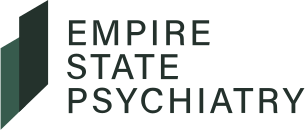Expert Therapy for OCD in NYC
Obsessive-Compulsive Disorder (OCD) is a mental health condition characterized by persistent, intrusive thoughts (obsessions) and repetitive behaviors or mental acts (compulsions) that an individual feels compelled to perform. These obsessions and compulsions can significantly disrupt daily life, causing considerable distress and impairment in social, occupational, or other important areas of functioning.
What is OCD?
Obsessions in OCD are unwanted and distressing thoughts, images, or urges that repeatedly enter a person’s mind. These thoughts often cause anxiety or discomfort, leading the individual to engage in compulsive behaviors to alleviate the distress. Common themes of obsessions include fears of contamination, aggressive impulses, doubts about safety or correctness, and unwanted sexual or religious thoughts. Despite recognizing that these thoughts are irrational or excessive, individuals with OCD often feel powerless to stop them.
Compulsions are the repetitive behaviors or mental acts that a person with OCD feels driven to perform in response to an obsession. These actions are typically intended to prevent or reduce anxiety or to prevent a feared event or situation. However, the relief provided by compulsions is usually temporary, and the obsessions often return, creating a cycle of distress and ritualistic behavior. Common compulsions include excessive cleaning, checking, counting, repeating actions, or arranging objects in a specific way.
What Are The Causes of OCD?
The exact cause of OCD is not fully understood, but research suggests that it may involve a combination of genetic, neurological, behavioral, cognitive, and environmental factors. Brain imaging studies have shown that individuals with OCD often have differences in the structure and function of certain areas of the brain, particularly those involved in regulating emotions and behavior. Additionally, OCD tends to run in families, indicating a potential genetic component.
What Are The Signs And Symptoms of OCD?
Recognizing OCD can be challenging, as the symptoms can vary widely from person to person. However, key signs to look for include the presence of persistent, intrusive thoughts and the performance of repetitive behaviors that the individual feels compelled to do, even when they recognize them as excessive or irrational. If these symptoms are causing significant distress or interfering with daily functioning, it may be time to seek professional help.
What Are Possible Treatments For OCD?
MEDICATION FOR OCD
Obsessive-Compulsive Disorder (OCD) is a chronic mental health condition characterized by persistent, unwanted thoughts (obsessions) and repetitive behaviors (compulsions). These symptoms can significantly interfere with daily life, making it challenging for individuals to function in social, occupational, and personal settings. While therapy is often a cornerstone of treatment for OCD, medication plays a crucial role in managing symptoms for many individuals.
The role of medication in OCD treatment
At Empire State Psychiatry, located in the heart of New York City, our team of experienced psychiatrists understands the complexities of OCD and offers personalized treatment plans to help patients manage their symptoms effectively. Medication can be particularly beneficial for those who have not found sufficient relief through therapy alone or for those whose symptoms are severe enough to require a multifaceted approach.
Common OCD medications
Selective Serotonin Reuptake Inhibitors (SSRIs)
SSRIs are the most commonly prescribed class of medications for OCD. They work by increasing the levels of serotonin, a neurotransmitter associated with mood regulation, in the brain. This class of medication is often the first line of treatment for OCD and has been shown to be effective in reducing both obsessions and compulsions.
Common SSRIs prescribed for OCD include:
- Fluoxetine (Prozac)
- Fluvoxamine (Luvox)
- Sertraline (Zoloft)
- Paroxetine (Paxil)
- Citalopram (Celexa)
These medications are usually started at lower doses and gradually increased to minimize side effects. Patients may need to take SSRIs for several weeks before noticing significant improvements in their symptoms.
Tricyclic Antidepressants (TCAs)
Clomipramine (Anafranil) is a tricyclic antidepressant that is particularly effective for OCD. Although it is not as commonly prescribed as SSRIs due to its side effect profile, Clomipramine has been used for many years to treat OCD and remains an option for patients who do not respond well to SSRIs.
Clomipramine works similarly to SSRIs by affecting serotonin levels in the brain, but it also impacts other neurotransmitters, which can result in a broader range of effects and potential side effects.
Other medications
In some cases, other types of medications may be prescribed in addition to SSRIs or TCAs to enhance their effectiveness or to target specific symptoms. These may include:
- Antipsychotic medications: These are sometimes used as an adjunct to SSRIs or TCAs, especially in cases where OCD symptoms are severe or resistant to standard treatments. Examples include Risperidone (Risperdal) and Aripiprazole (Abilify).
Benzodiazepines: While not typically used as a long-term solution, benzodiazepines may be prescribed on a short-term basis to manage acute anxiety associated with OCD.
Considerations when taking OCD medication
Like all medications, those used to treat OCD come with potential side effects. The most common side effects of SSRIs include nausea, insomnia, sexual dysfunction, and fatigue. Clomipramine may cause dry mouth, constipation, weight gain, and dizziness. It is important to discuss any concerns about side effects with your psychiatrist, who can adjust the medication dosage or switch to a different medication if necessary.
At Empire State Psychiatry, we take a personalized approach to treatment, carefully monitoring each patient’s response to medication and making adjustments as needed to optimize outcomes while minimizing side effects.
The importance of adherence and monitoring
For medications to be effective in managing OCD, it is essential that patients adhere to the prescribed treatment plan. Discontinuing medication abruptly or without the guidance of a psychiatrist can lead to a relapse of symptoms or withdrawal effects. Regular follow-up appointments at Empire State Psychiatry allow for ongoing assessment and adjustment of the treatment plan as needed, ensuring that patients receive the most effective care.
THERAPY FOR OCD
Obsessive-Compulsive Disorder (OCD) is a complex and often debilitating condition characterized by persistent, intrusive thoughts (obsessions) and repetitive behaviors (compulsions) that individuals feel driven to perform. These symptoms can significantly interfere with daily life, affecting relationships, work, and overall well-being. At Empire State Psychiatry in New York City, our experienced team of psychiatrists and therapists specializes in the treatment of OCD, offering evidence-based therapeutic approaches tailored to each individual’s unique needs.
Understanding OCD therapy
Therapy is a cornerstone in the treatment of OCD, with Cognitive Behavioral Therapy (CBT) being the most widely recognized and effective approach. Within CBT, a specific technique known as Exposure and Response Prevention (ERP) is considered the gold standard for treating OCD.
Cognitive Behavioral Therapy (CBT)
CBT for OCD focuses on identifying and challenging the distorted beliefs and thought patterns that underlie obsessive thoughts. The goal is to help patients develop healthier ways of thinking and reduce the compulsive behaviors that are often performed in an attempt to alleviate anxiety.
Exposure and Response Prevention (ERP)
ERP, a subset of CBT, is particularly effective for OCD. This approach involves gradually exposing patients to the situations or thoughts that trigger their obsessions, in a controlled and safe environment. The therapist guides the patient in resisting the urge to engage in their usual compulsive behaviors. Over time, this process helps reduce the anxiety associated with obsessive thoughts and weakens the compulsion to perform rituals, ultimately leading to a significant reduction in symptoms.
The therapy process at Empire State Psychiatry
At Empire State Psychiatry, our approach to treating OCD is highly personalized. Each patient undergoes a comprehensive assessment to understand the nature and severity of their symptoms. Based on this evaluation, a customized treatment plan is developed, often incorporating ERP as a central component.
Step 1: Initial Assessment
The first step in the therapy process involves a detailed assessment conducted by one of our expert psychiatrists or therapists. This assessment includes a thorough review of the patient’s medical history, an evaluation of current symptoms, and an exploration of how OCD is impacting their daily life.
Step 2: Developing a Treatment Plan
Based on the initial assessment, a tailored treatment plan is created. This plan typically includes regular therapy sessions focused on ERP, where patients gradually confront their obsessions in a structured manner. The frequency and intensity of these sessions are adjusted according to the patient’s progress and comfort level.
Step 3: Ongoing Therapy and Support
Throughout the therapy process, patients receive continuous support from their therapist. This support includes not only guidance during ERP sessions but also strategies for managing OCD symptoms outside of therapy. Patients are encouraged to apply the techniques learned in therapy to real-life situations, helping them gain confidence in managing their symptoms independently.
Step 4: Monitoring Progress and Adjusting Treatment
Therapy for OCD is a dynamic process that requires ongoing evaluation and adjustment. At Empire State Psychiatry, we closely monitor each patient’s progress, making necessary modifications to the treatment plan to ensure optimal outcomes. This may involve adjusting the frequency of sessions, introducing additional therapeutic techniques, or providing supplementary resources for continued support.
What Are The Risks If OCD Is Left Untreated?
OCD can have a profound impact on an individual’s life, affecting their ability to function at work, school, and in relationships. The time-consuming nature of compulsions and the distress caused by obsessions can lead to avoidance of certain situations, social isolation, and a diminished quality of life. The condition often causes significant emotional distress, and it is not uncommon for individuals with OCD to also experience other mental health issues, such as anxiety disorders, depression, or substance abuse.
Schedule a psychiatric consultation.
If you are experiencing symptoms of obsessive-compulsive disorder (OCD), schedule a consultation with the psychiatric specialists at Empire State Psychiatry. Widely regarded as one of the top OCD treatment centers in New York City, Empire State Psychiatry is committed to delivering expert, patient-centered mental health care. Their office is located in Midtown Manhattan, and they serve patients from the Upper East Side and surrounding New York City neighborhoods.
Publications
Jarrod A. Marks, MD, Jacob M. Appel, MD, JD. Compulsively Moral: OCD, Ethics & The Law. FOCUS: The Journal of Lifelong Learning in Psychiatry. Published online November 5, 2021.
https://doi.org/10.1176/appi.focus.20210026

